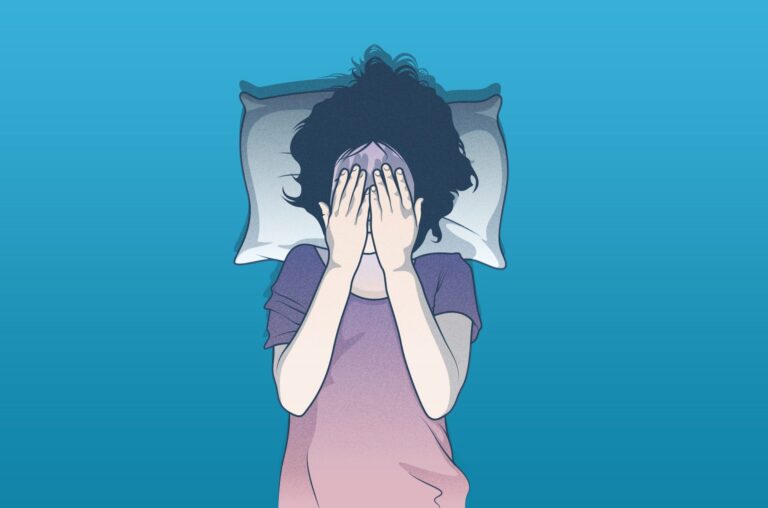
Contents
Introduction:
Children’s physical and mental health depend on getting enough sleep. However, insomnia—a condition marked by trouble sleeping or staying asleep—is becoming more and more common in young people. Understanding the origins, effects, and methods for relieving children’s insomnia as parents or other caregivers is essential for their general development and well-being.
Comprehending Childhood Sleep Disorders:
Sleep disorders in children can take many different forms, such as trouble falling asleep, frequent nighttime awakenings, or excessive early morning wakefulness. Periodic sleep difficulties are common, but chronic insomnia has a substantial negative influence on a child’s behavior, mood, and general quality of life. Effective treatments for insomnia requires the identification of the underlying causes.
Childhood Insomnia:
There are a number of variables that can cause childhood insomnia, including underlying medical or psychiatric disorders as well as environmental influences. Frequent causes include erratic sleep patterns, excessive screen time before to bed, anxiety or stress, medical disorders like restless leg syndrome or sleep apnea, and behavioral problems including resistance to going to bed or fears of the dark. Recognizing these causes is the first step in treating childhood sleeplessness.
The Effects of Insomnia on Kids:
Children’s physical and emotional health can be significantly impacted by insomnia. Chronic sleep deprivation can exacerbate emotional and behavioral issues, damage the immune system, impede growth and development, and impair cognitive performance. Children who suffer from insomnia may be irritable, have trouble focusing, experience mood swings, and have trouble interacting with others. These symptoms can negatively impact a child’s quality of life and scholastic achievement.
Handling Childhood Insomnia:
A comprehensive strategy that tackles the symptoms as well as the underlying reasons is necessary for the effective therapy of childhood insomnia. Promoting improved sleep quality in children requires putting into practice good sleep practices, or what’s commonly referred to as sleep hygiene. This includes keeping a regular sleep schedule, establishing a relaxing evening ritual, making sure the sleeping environment is suitable, and avoiding stimulating activities right before bed.
It’s also critical to treat any underlying medical conditions or psychological disorders that may be causing your insomnia. Identifying and treating any underlying conditions, such as anxiety, behavioral issues, or sleep disorders, can be facilitated by seeking advice from pediatricians, sleep specialists, or mental health professionals. To reduce insomnia symptoms and enhance sleep patterns, behavioral therapy or medication may be suggested in some situations.
Parental Support and Involvement:
Parents are essential in promoting their kids’ sound sleep habits. A suitable sleep environment can be established by parents through the establishment of a loving and encouraging bedtime ritual. This entails deciding on regular wake-up and bedtime hours, developing relaxing pre-sleep routines like listening to soothing music or reading, and setting up a cozy, distraction-free sleeping environment.
Parents can also emphasize the value of sleep in the family by setting a good example for their children and giving their own sleep hygiene first priority. In addition to promoting trust and cooperation in the treatment of insomnia, open talk about sleep-related issues and attentive listening to children’s experiences are also beneficial.
Teaching kids the value of getting enough sleep and equipping them with coping mechanisms to handle stress or worry can also be helpful. Children can relax and get ready for sleep more easily if they are taught relaxation techniques like mindfulness or deep breathing exercises.
Community and School Support:
Communities and schools can also help kids develop sound sleeping habits. Creating a supportive environment for children’s sleep health can be achieved through educating parents, teachers, and school personnel about the significance of sleep and its impact on academic performance and general well-being.
Reducing sleep interruptions and supporting children’s sleep needs can be achieved by implementing policies in schools that promote sleep-friendly practices, such as capping homework assignments that interfere with sleep time or arranging extracurricular activities at suitable hours.
In summary,
Sleeplessness in childhood is a common but sometimes disregarded condition that can negatively impact a child’s growth and health. Working together, parents, caregivers, educators, and healthcare professionals may support young minds in getting restful and restorative sleep by having a thorough awareness of the causes, implications, and therapeutic approaches for treating childhood insomnia. We can assist children in overcoming insomnia and benefiting from a restful night’s sleep by promoting healthy sleep habits, treating the underlying causes of insomnia, and offering the right kind of support and intervention.